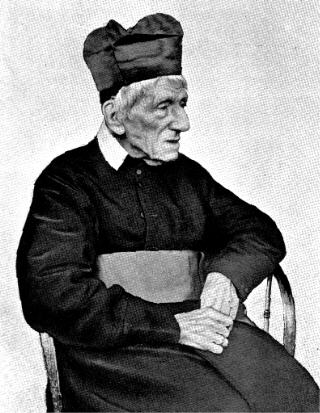
A few months ago, I had the privilege of visiting Cardinal Newman’s rooms at the Birmingham Oratory. As well as his academic library and his private chapel, they contain his private collection of books, to be kept at hand when he was thinking and writing, or simply to be read for pleasure. As well as works on philosophy, liturgy and travel, there are also novels, including most of the output of Anthony Trollope. And, even to the end of his life, he had by his side works by his Anglican friends John Keble and Dr Pusey.
As well as conscience, which we thought about last week, “development” is another of Newman’s key ideas. True and valid theological doctrines don’t change, they develop. We can distinguish between what is legitimate and faithful, and what is corruption: a teaching needs to keep the same principles, to point to what is going to happen in what has already happened, and to protect what has gone before. It needs to be strong, gathering other ideas to itself and reviving knowledge and practices which may have been forgotten, and to be part of existing Christian teaching and practice.
Many things which are not legitimate and faithful developments can seemingly be ‘justified’ by using Newman’s theory, but they always fall down somewhere or skate over difficult patches. He says the Church “moves as a whole,” as a communion rather than an ideology, and has “no right rudely to wipe out the history of centuries...” If “a grave dogmatic question was being treated merely as a move in ecclesiastical politics”, that was a very serious matter.
All of Newman’s work is concerned with investigating the “historical faith”: but even if something happens which is apparently unfaithful, for faithful Christians “remedies spring up naturally in the Church, as in nature, if we wait for them”. But what is important is development, not change: even 45 years after he came to the conclusion that he could no longer remain in the Church of England, he had the theological works of his Anglican friends and colleagues by his side. In his life, as in his thought, we see development, not change.



No comments:
Post a Comment